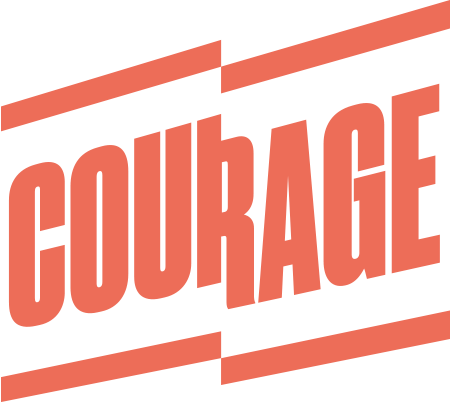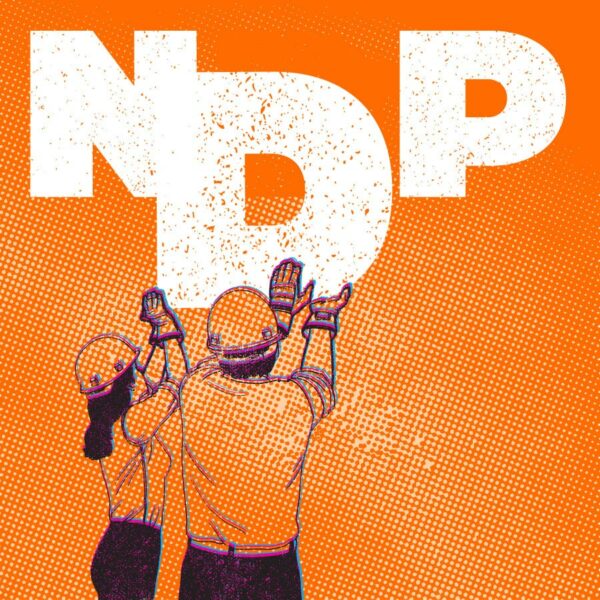Let’s Put Democracy back in the NDP
ALIGNING THE PARTY WITH THE WILL OF THE MEMBERS AND THE ENERGY OF MOVEMENTS WILL MAKE IT A MORE EFFECTIVE FORCE FOR CHANGE
Within the NDP, many dedicated grassroots activists suspect that their voices are unheeded, while their creativity and expertise is unused. Many feel taken for granted and only valued as a donor base for the party.
Everything the NDP accomplishes is due to its thousands of dedicated volunteers. Instead of treating them as a liability, we believe that the NDP should make full use of the intelligence, creativity and experience of its members.
Democracy is the best tool we have to do that.
The following proposals are based on the experiences of Courage members, nearly 400 responses to our survey, and many resolutions from riding associations that were not discussed or voted on at the 2016 Convention in Edmonton.
Movements fuel the NDP’s successes
Many political parties, and the NDP in particular, owe their existence to grassroots movements. Before they become laws or platform planks, the party’s most transformative policies are generated and popularized by grassroots activism and organizing, usually outside the party. Whether it’s the labour movement, feminist groups, Indigenous mobilizations, LGBTQ2 advocacy, environmental direct action or others, the NDP owes much to movements.
The NDP’s many political victories are the blossoms, but movements are the roots. To keep it growing, the NDP must nourish the roots that it comes from. If the NDP can keep it roots healthy, it can extend its reach and resonance, and speed up positive transformations of our society and economy.
Courage proposes that the NDP:
- Mobilize its members between elections in support of non-electoral campaigns, including campaigns that are not lead by the NDP itself;
- Hold trainings (from online workshops to training camps) in a variety of skills for organizing and campaigning;
- Allow and encourage use of mailing lists to promote regional and local movement activity that broadly aligns with the party’s platform;
- Sponsor speaking tours of grassroots activists, inviting its members and supporters into dialogue about cutting-edge issues;
- Recognizing that different currents of thought exist within the party, allow and encourage tendencies to form, so long as they respect some basic rules;
- Commit resources to the equitable participation and political advancement of women, people of colour, LGBT2Q, Indigenous, disabled and otherwise vulnerable or stigmatized communities and peoples both within the NDP ranks and as part of all of the activities listed above.
A peoples’ platform
The NDP’s policy book—the result of countless hours of work by party members—has been neglected and suppressed. During the last federal election, it was even removed from the party’s web site. The policy book is the centrepiece of the NDP’s democratic functioning of the Party and cannot be ignored or neglected.
The work that members and Electoral Riding Associations put into the consultations, drafting and debating of policy motions must be respected. Those who run election campaigns and create messaging for parliamentarians must echo the democratic mandate of the policy book.
It’s time to take the members’ voices seriously, and to expand support within activist communities. It is time to create a common, inclusive vision for our economy and society that we can collectively promote, and hold our leaders accountable to.
Courage proposes that the NDP:
- Through deep consultation with members and allied communities, develop a vision for our government, economy and social issues that goes beyond the tinkering of recent years;
- Use all available means to canvas membership regularly on policy priorities on local, regional and federal levels, make the results available, and account for discrepancies between the will of the members and the choices of party leaders;
- Hold regular policy debates and discussions, inviting elders, experts and activists to present the case for different positions;
- Renew the expectation that role of both leader and staff is to promote, communicate and ultimately implement the platform democratically created by party members.
Leadership starts at the grassroots
Concentration of power in the leader’s office has created an unvirtuous cycle within the Federal NDP. In many cases, decision-making power has been removed or overridden within riding associations. Even the Federal Council is out of the loop on many key decisions.
Members are increasingly treated as ATMs rather than skilled agents for political transformation, and many former party activists see little point in participating.
For those who do participate, loyalty and obedience are often rewarded, while independent thinking and activism are too frequently discouraged. As a result, the considerable talents of many members are wasted.
At least one leadership candidate has picked up the slogan “the NDP doesn’t need one new leader, it needs thousands.” Here’s how we can put that into practice.
Courage proposes that the NDP:
- Ensure that when new members join, they are presented with opportunities to participate in discussion, learn new skills, and help to shape the direction of the party;
- Hold regular educational events aimed at deepening members understanding of issues, and training sessions aimed at skill building with a view to building a robust democratic culture;
- Create accountability measures for staff members and recall mechanisms for elected party officials (both within the NDP and those who hold public office) to ensure they uphold a high standard of transparency and adherence to party policies.
Campaigning to our full potential
Campaigns have too often occasioned a sinking feeling. Dedicated volunteer effort is taken for granted, while a coterie of insiders close ranks to stage-manage our collective efforts.
This way of running campaigns is ultimately detrimental to the NDP.
Aligning with members’ skills, insight and priorities will result in more effective campaigns, broader participation, and greater enthusiasm.
Courage proposes that the NDP:
- Build on campaign practices that
- a) are led by members and enhance their knowledge and skills
- b) make maximum use of the insights of those organizing on the ground
- c) achieve mass participation that reflects the diversity of the society we serve
- Reform the election planning committee structure to
- a) ensure decisions are rooted in i) the policy book and ii) input gathered from the members in the period before the writ drops;
- b) institute checks and balances to ensure that power does not become concentrated in a few hands
- c) add accountability measures for staff who violate the party’s high standards of democratic functioning and respect for the will of the members;
- Ensure that any interventions that override the will of EDAs (candidate selection in particular) meet a high standard of accountability and transparency, and are consistent with the expressed will of the membership and the policy book.
Decolonizing with Indigenous allies
To be a truly modern political party, the NDP must align itself completely with the moral and constitutional realities of nation-to-nation relationships.
Federal and provincial governments are in the habit of violating the sovereignty, land rights and treaty rights of Indigenous nations. These habits violate the law of the land in every sense—from the laws of Indigenous nations to Canada’s constitution. The NDP must continue to build and strengthen relationships with Indigenous-led movements for decolonization, while ensuring that its policies are deeply aligned with those movements.
Courage proposes that the NDP:
- Form a committee of activists and legal experts that will vet each new policy proposal, and when necessary, propose amendments that would bring the policy into line with relevant sovereignty, land rights, treaty rights and constitutional questions;
- Solicit proposals for the increased participation of Indigenous nations and communities in governance (within the party and in government) in a way that respects the diversity of political cultures and orientations toward the Canadian state;
- Approach policy—particularly in health, education, child welfare, justice systems—with a view to full implementation of both the Truth and Reconciliation Commission calls to action and the Royal Commission on Aboriginal Peoples recommendations, bringing a critical analysis of how systems shape Indigenous peoples’ access to resources and land.
Convening our movements
Like campaigns, conventions should be an apex of democratic energy, a place where ideas and proposals are urgently debated, where political interests collide, divide and combine, and a collective will emerges from the ferment.
There is room for showcases—preferably to highlight emerging leaders and connections to movements—but the spectacular should not come at the expense of the substantial. Many resolutions, the result of careful debate and coordinated efforts by riding associations, seem to disappear as soon as each convention ends.
Courage proposes that the NDP:
- Overhaul the process by which resolutions are debated and adopted:
- Democratize the process of prioritizing and debating resolutions;
- Increase the number of resolutions that are debated and voted on;
- Explore online options for voting and debate to maximize participation;
- For all resolutions passed on to the federal council, members should have access to a full report on the results of those votes within a reasonable delay;
- Maintain an online record of all votes and resolutions, accessible to members in perpetuity.
- Create space for, and encourage, the participation of unorganized workers (e.g. freelancers, young workers, fast food workers, parents, homemakers and other unpaid labourers);
- Facilitate caucuses, networking sessions, and tendencies organizing at the convention through meeting rooms, access to announcements, and other communications resources.




